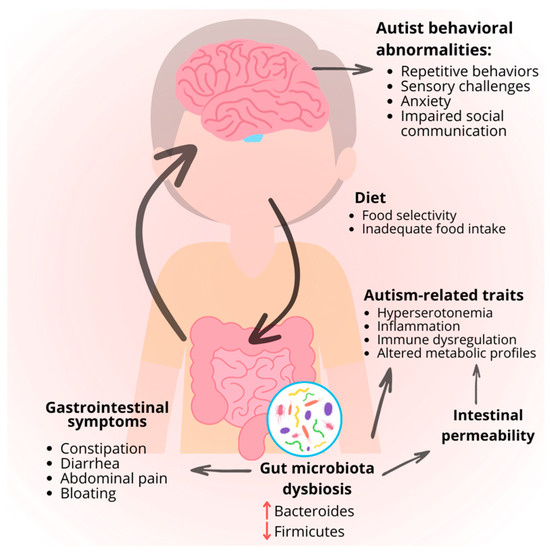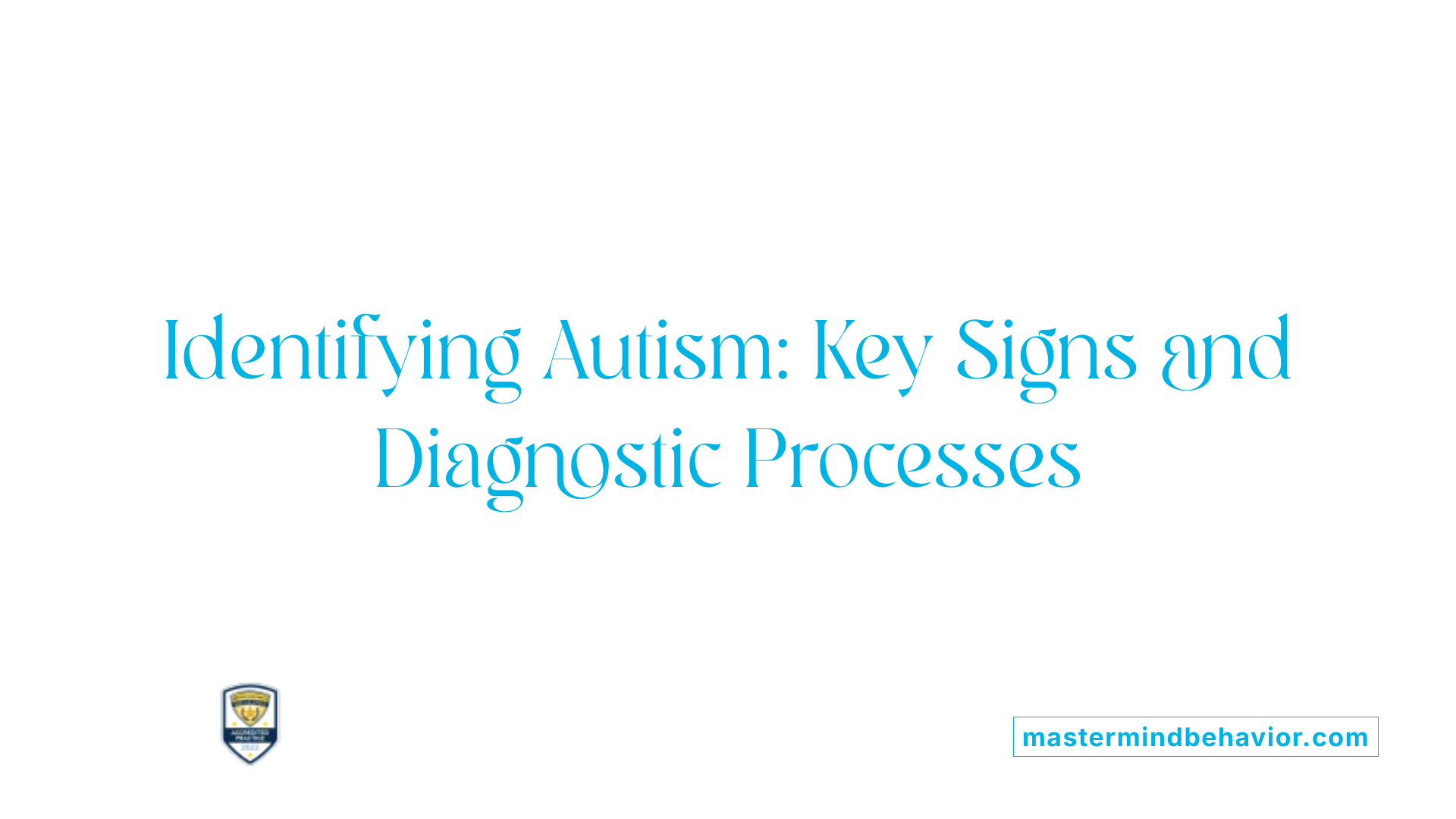Using Autism Behavioral Therapy, families can foster independence in daily routines
Recognizing the Impact of Behavioral Autism on Day-to-day Live and Social Communications
You may not recognize exactly how deeply behavioral autism impacts everyday life and social interactions. Individuals on the spectrum often browse a globe loaded with communication hurdles and sensory overload. These obstacles can lead to irritation and isolation, affecting their relationships and total health.
Defining Behavior Autism and Its Characteristics
Behavioral autism, usually referred to as autism spectrum condition (ASD), includes a variety of conditions defined by difficulties in social communication, communication, and repetitive habits. You might discover that people with ASD often have a hard time to translate social hints, which can result in misunderstandings in conversations. They might discover it hard to establish eye contact or participate in small talk, making social circumstances feel frustrating.
Communication difficulties can show up in numerous methods, from delayed speech growth to a choice for using fewer words. Repetitive behaviors, such as hand-flapping or rocking, can offer as coping devices to manage stress or sensory overload. These attributes can exceptionally impact day-to-day live, making it crucial for you to understand and support those with ASD. By acknowledging these attributes, you can foster a setting that advertises approval and encourages efficient communication, aiding people with autism thrive in their day-to-day interactions.
The Spectrum of Autism: Understanding Irregularity in Habits
Autism spectrum condition (ASD) isn't a one-size-fits-all diagnosis; it differs widely among individuals. You might come across individuals who are extremely spoken and engage conveniently in discussions, while others might favor solitary activities or connect non-verbally.
Furthermore, the means people with ASD reply to sensory input can vary considerably; some could be overwhelmed by bright lights or loud sounds, whereas others flourish in promoting settings. The range additionally consists of differences in social communications; some individuals may have a hard time to interpret social signs, while others navigate social setups with relative simplicity. Recognizing this irregularity is vital, as it aids you appreciate each individual's one-of-a-kind experience and dressmaker assistance to their specific needs, promoting an extra inclusive setting for everyone.
Interaction Challenges Dealt With by People With Autism
When you communicate with people on the autism range, you might observe their unique communication obstacles. They usually encounter problems with both spoken and nonverbal hints, which can influence their social communications. Comprehending these obstacles is important for fostering far better links and assistance.

Verbal Interaction Difficulties
Several individuals on the autism spectrum experience verbal interaction problems that can substantially affect their everyday interactions. You could find it testing to share your thoughts, feelings, or requires plainly. This can result in disappointment for both you and those around you, as misunderstandings happen. You might deal with initiating discussions, keeping a subject, or recognizing nuances in speech. Often, you may favor utilizing easy language or repetitive phrases, which can restrict your ability to engage in deeper discussions. Your rate, tone, or quantity could not straighten with social expectations, triggering others to misinterpret your intentions. Recognizing these obstacles can aid you and your support network establish methods to improve communication and promote better connections with others in your every day life.
Nonverbal Communication Barriers
Spoken communication isn't the only obstacle individuals on the autism spectrum face; nonverbal communication barriers can be just as significant. These obstacles can lead to misunderstandings or misconceptions of social cues, making communications feel overwhelming or confusing. By resolving nonverbal interaction, you can discover approaches to improve your social experiences and enhance your general top quality of life.
Social Communication Influences
Social communications can often really feel frustrating due to the distinct interaction obstacles encountered by people with autism. Recognizing these challenges can help you find techniques to improve interaction, such as exercising social abilities in secure settings or making use of visual aids. Recognizing your requirements allows you to browse social interactions with higher self-confidence and simplicity.
Social Interaction and Partnership Building in Autism
While structure relationships can be challenging for people with autism, recognizing their unique perspectives and interaction styles can promote purposeful links. You might see that numerous people on the spectrum choose direct communication and might deal with social signs or small talk. By being uncomplicated in your interactions, you can assist create an atmosphere where they feel comfortable.
Engaging in shared passions can also serve as a bridge to much deeper links. Whether it's a pastime, a preferred show, or useful source a mutual enthusiasm, these typical threads can open up doors to relationship.
Life Routine: Navigating Obstacles and Strategies
Navigating daily life routines can be especially testing for people with autism, especially when unexpected changes take place. To browse these difficulties, consider applying aesthetic schedules or checklists.
Establishing a regimen that consists of sensory breaks can also be valuable. You can plan short breaks throughout your day to charge. It's vital to communicate with those around you, letting them recognize your requirements and preferences. This assists develop an understanding environment.
Lastly, technique mindfulness strategies to take care of anxiety and stress and anxiety. Simple breathing workouts or basing strategies can make a considerable distinction. By integrating these techniques, you can improve your day-to-day routine and minimize disruptions, making life really feel much more convenient.
Strengths and Abilities of Individuals on the Autism Range
Recognizing day-to-day life regimens is simply one aspect of the autism experience. Numerous people on the autism range possess impressive staminas and capabilities that establish them apart.
Moreover, your memory abilities usually shine, particularly in areas additional reading of passion. Aba Therapist Near Me. This knack for keeping info can make you a valuable source in areas like scientific research, art, or modern technology. You might also show solid visual thinking, allowing you to imagine complex principles and resolve issues artistically
Furthermore, your special point of view on the world can promote compassion and understanding in others, enriching social interactions. Embracing these toughness not just increases your self-confidence but likewise aids others value the diverse talents you give the table.
Developing Inclusive Settings for Individuals With Autism
Developing comprehensive settings for individuals with autism begins with creating sensory-friendly areas that accommodate their unique demands. You can additionally cultivate possibilities for social communication, aiding to develop relationships and connections. By making these changes, you'll add to a much more inviting environment for every person.
Designing Sensory-Friendly Spaces
While creating sensory-friendly rooms, it's vital to show on the distinct requirements of individuals with autism. Incorporate quiet zones where individuals can retreat and recharge when overwhelmed. Consist of visual routines or clear signs to help people navigate the room confidently.
Promoting Social Communication Opportunities
Designing sensory-friendly rooms not only addresses individual convenience however also establishes the stage for significant social communications amongst individuals with autism. Urge peer mentoring, combining people with autism with encouraging peers who can you could try here lead them through social situations. By implementing these strategies, you can improve social possibilities, aiding individuals with autism construct friendships and enhance their social abilities in a risk-free, inviting setting.

Frequently Asked Inquiries
How Can Pals Assistance A Person With Behavioral Autism?
You can sustain a good friend with behavioral autism by being individual, paying attention proactively, and valuing their boundaries. Take part in activities they appreciate, connect freely, and produce a comfortable atmosphere where they feel valued and recognized.
What Resources Are Available for Moms And Dads of Kid With Autism?
You can check out various resources for moms and dads of kids with autism, including support system, educational web sites, and regional social work. Connecting with various other moms and dads can also supply beneficial insights and shared experiences to aid navigate challenges.
Can Behavioral Autism Adjustment With Time?

Yes, behavioral autism can alter over time. You could see shifts in communication, social skills, and actions as your kid grows. Early intervention and assistance often play important functions in these developmental modifications.
How Do Sensory Level Of Sensitivities Influence Every Day Life?
Sensory sensitivities can make day-to-day experiences overwhelming. You could have a hard time with loud sounds or bright lights, resulting in anxiety or evasion. Discovering settings that accommodate your demands can considerably improve your convenience and total day-to-day live.
What Prevail Misconceptions About Behavioral Autism?
You might think behavioral autism just impacts interaction skills, yet it's even more complicated. Several think individuals lack compassion or knowledge, which isn't real. Understanding these misunderstandings helps foster acceptance and support for those on the spectrum.
Behavioral autism, frequently referred to as autism spectrum disorder (ASD), encompasses a range of conditions defined by challenges in social interaction, communication, and repeated habits.Social communications can frequently feel overwhelming due to the unique interaction challenges faced by people with autism.Designing sensory-friendly spaces not just addresses individual comfort however likewise establishes the phase for meaningful social communications among individuals with autism. Motivate peer mentoring, combining individuals with autism with helpful peers who can direct them with social situations. By carrying out these approaches, you can enhance social possibilities, helping individuals with autism develop friendships and enhance their social skills in a risk-free, inviting environment.